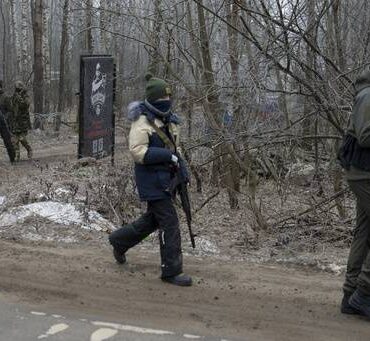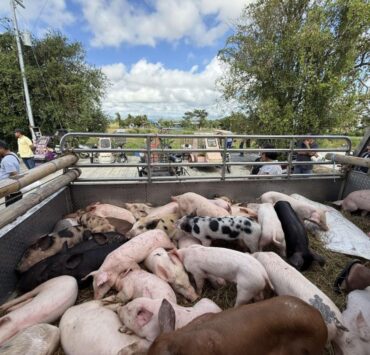Gazans return to ruined homes, severe water shortage
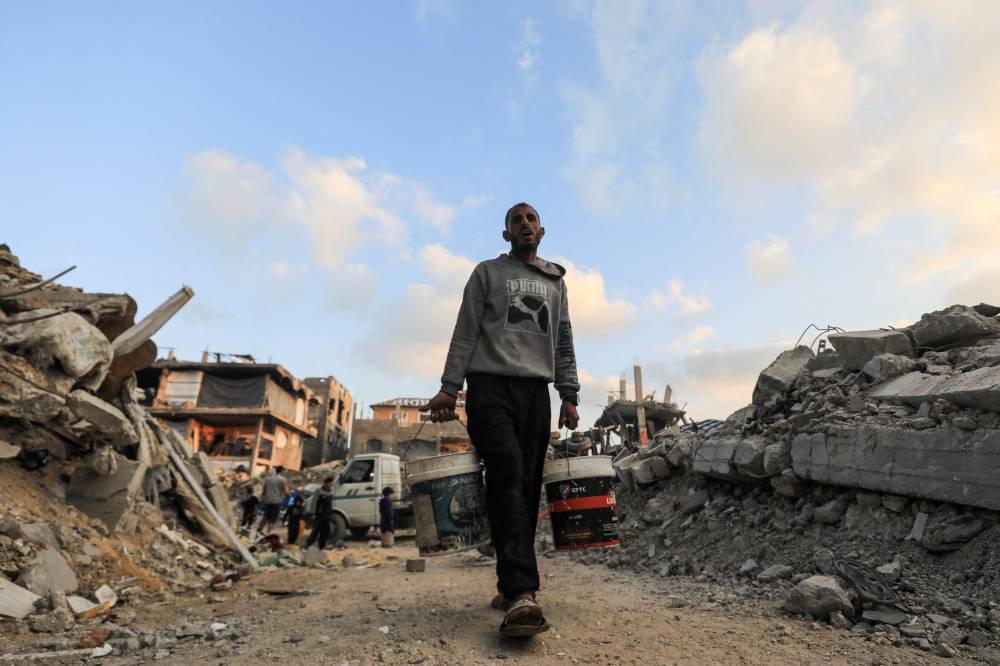
BEIT LAHIYA, GAZA—A ceasefire has enabled some Gazans to go back to their ruined homes without fear of Israeli airstrikes, but they have returned to a severe water crisis.
“We returned here and found no pumps, no wells. We did not find buildings or houses,” said 50-year-old farmer Bassel Rajab, a resident of the northern town of Beit Lahiya.
“We came and set up tents to shelter in, but there is no water. We don’t have water, we are suffering.”
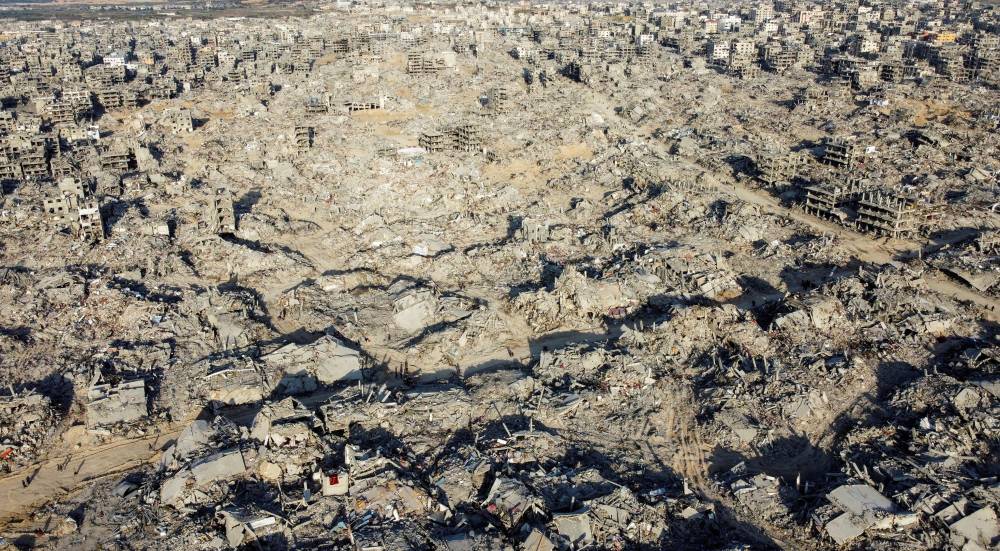
Drinking, cooking and washing are a luxury in Gaza, 16 months after the start of the war between Israel and the Palestinian militant group Hamas.
US President Donald Trump has described Gaza as a demolition site and called for Palestinians to be relocated to better places.
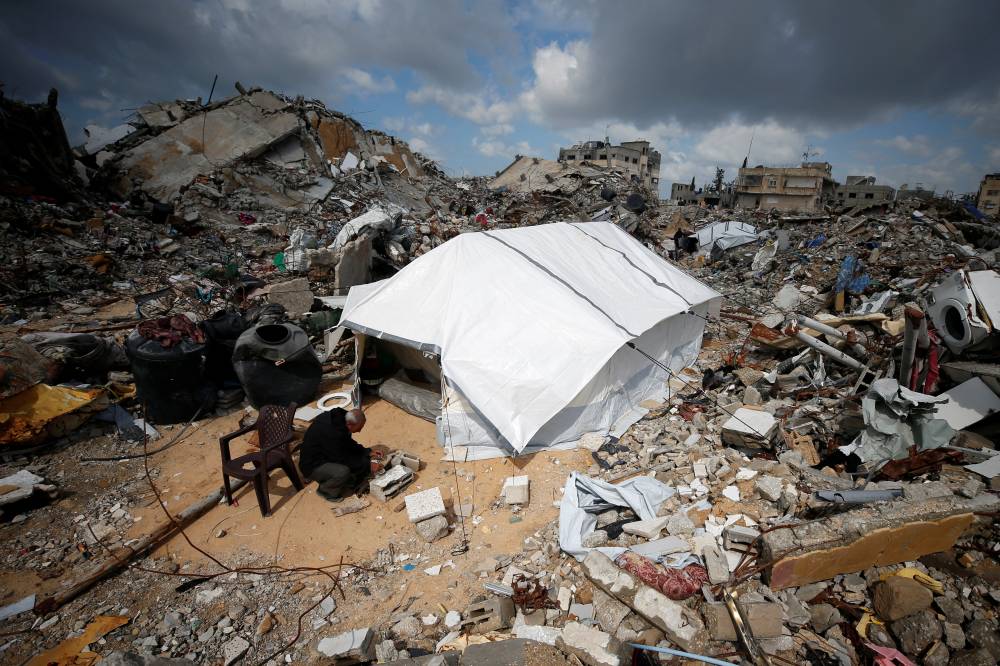
Hamas and many Arab leaders have however condemned Trump’s plan and similar initiatives.
Rajab said he sometimes walks 16 km in the hope of taking a shower in Gaza City.
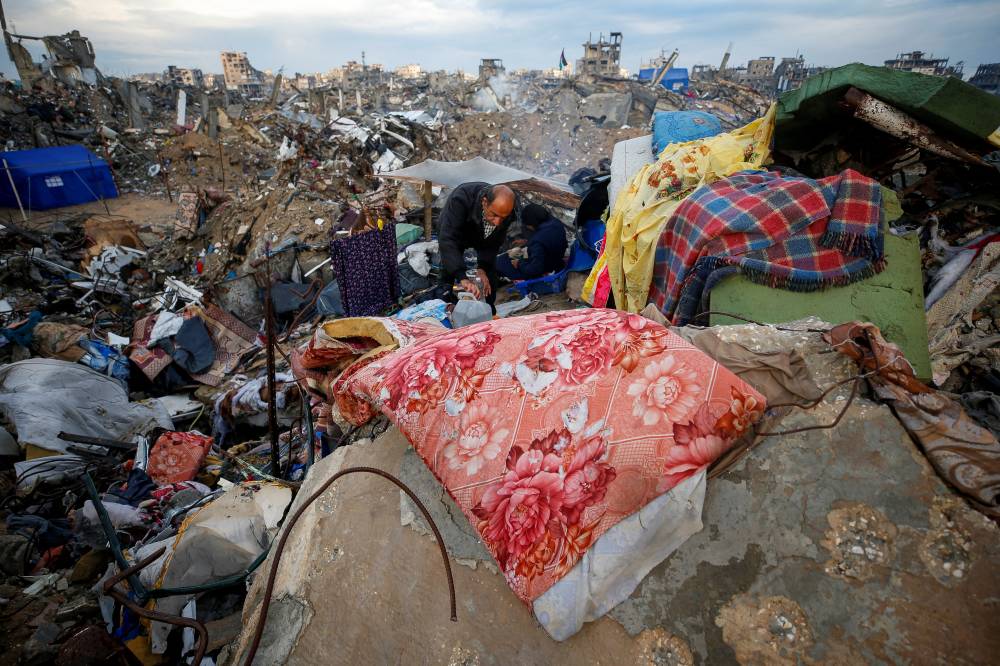
Some Palestinians have dug wells in areas near the sea, or rely on salty tap water from Gaza’s only aquifer, contaminated with seawater and sewage.
The Palestinian Water Authority estimates that it will cost $2.7 billion to repair the water and sanitation sectors.
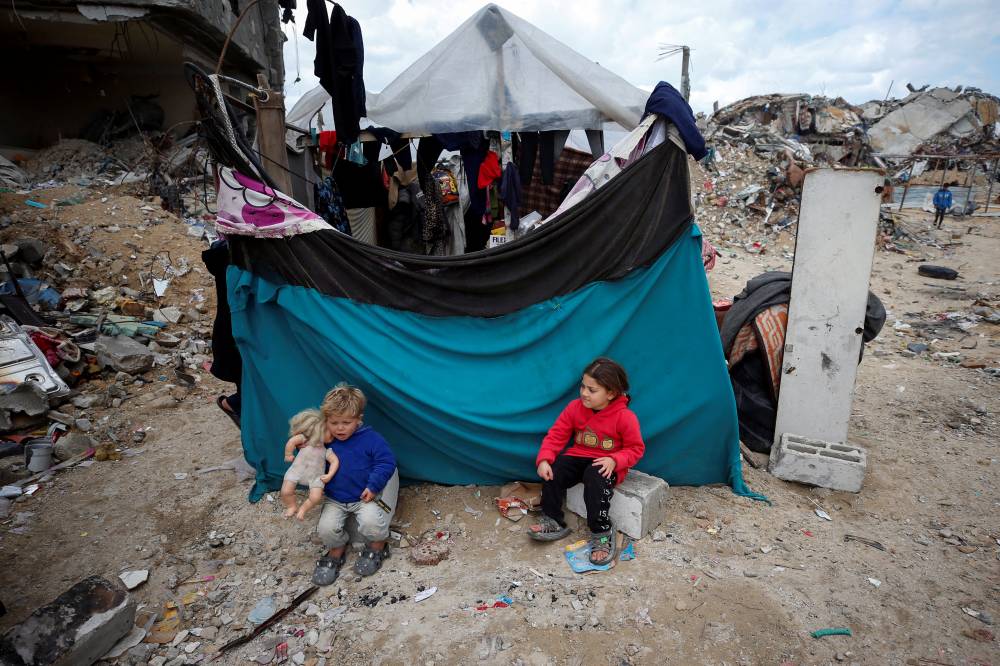
Food, medicine shortages
Palestinians were already facing a severe water crisis as well as shortages of food, fuel and medicine before the wells were destroyed in the war.
The Palestinian Water Authority said in a statement on its website that 208 out of 306 wells had been knocked out of service during the war and a further 39 were partially out of service.
“There is a big shortage as the occupation (Israel) is preventing the entrance (into Gaza) of drills, excavators, machines, equipment and generators that are needed to operate wells and to dig them,” said Beit Lahiya mayor Alaa Al-Attar.
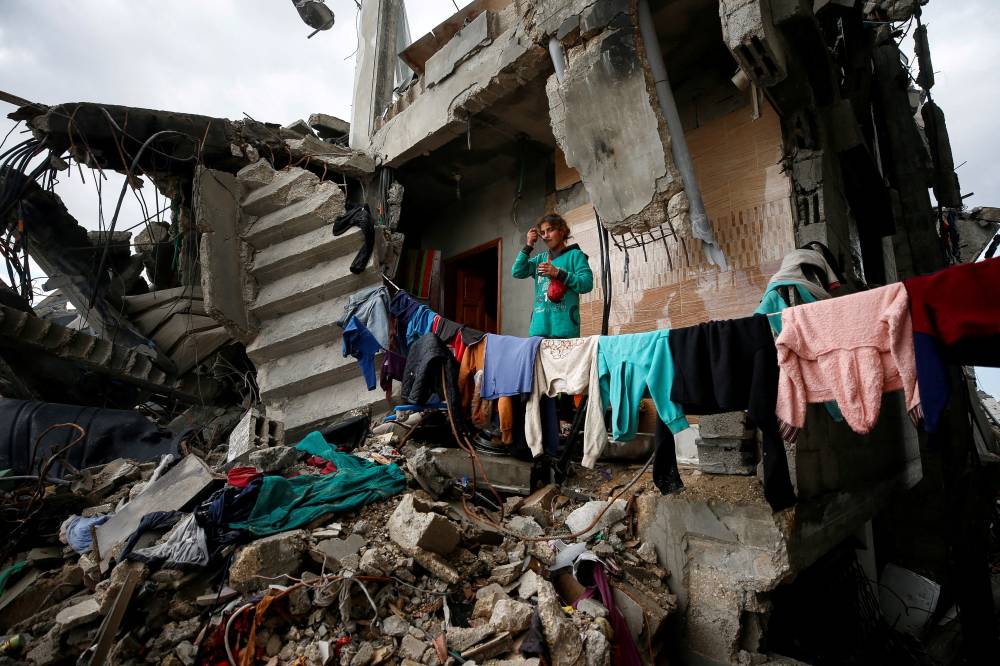
Attar said small companies were trying to fix the wells but have very limited equipment, adding: “We are trying to establish new wells to mitigate the severity of the water crisis at this stage.”
Israel has denied blocking Israel has denied obstructing humanitarian aid deliveries to Gaza and COGAT, the branch of the Israeli military that manages humanitarian activities, has said it has coordinated water line repairs with international organizations, including one to the northern Gaza Strip.
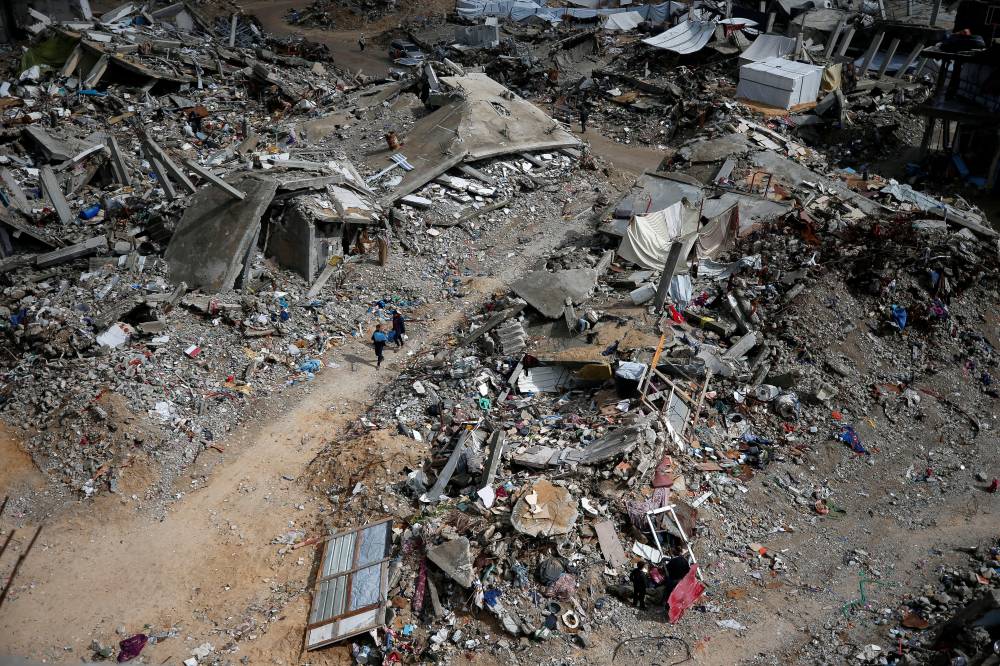
‘They all want water’
Hamas-led gunmen killed about 1,200 people and seized more than 250 hostages when they attacked southern Israeli communities on October 7, 2023, according to Israeli tallies.
The offensive Israel launched in response in Gaza has killed more than 48,000 Palestinians, according to Hamas health authorities, and devastated much of the enclave. The Hamas-Israel ceasefire has been in force since January 19.
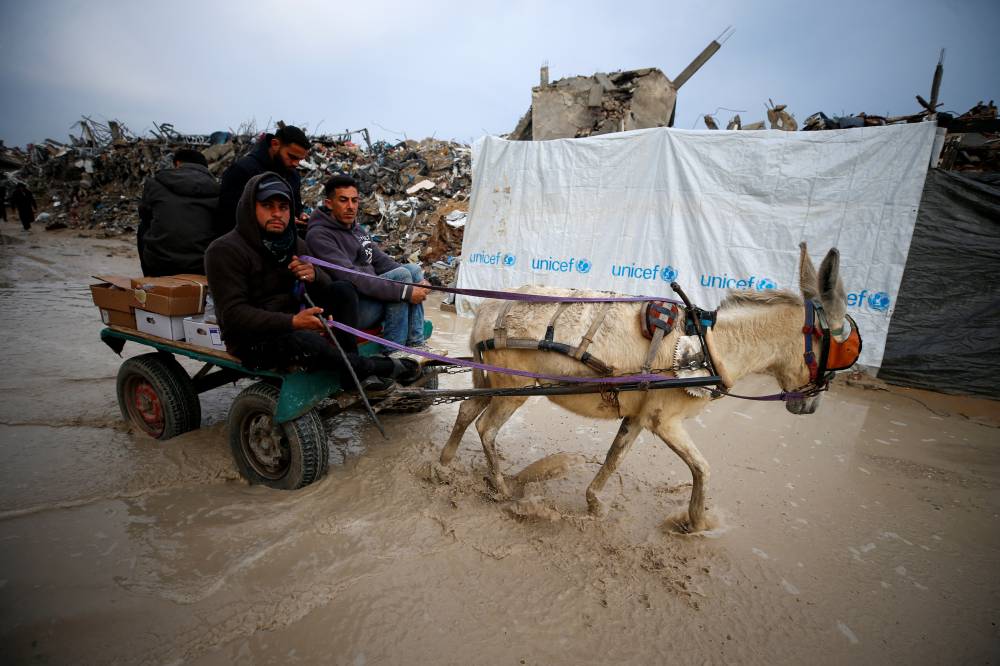
Gazans hoping to one day rebuild are squeezed by shortages of water, food, medicines and fuel in Gaza, which was grappling with poverty and high unemployment even before the war erupted.
Youssef Kallab, 35, says he has to carry heavy water containers to the roof of his home using a rope. The municipality supplies water every three days.
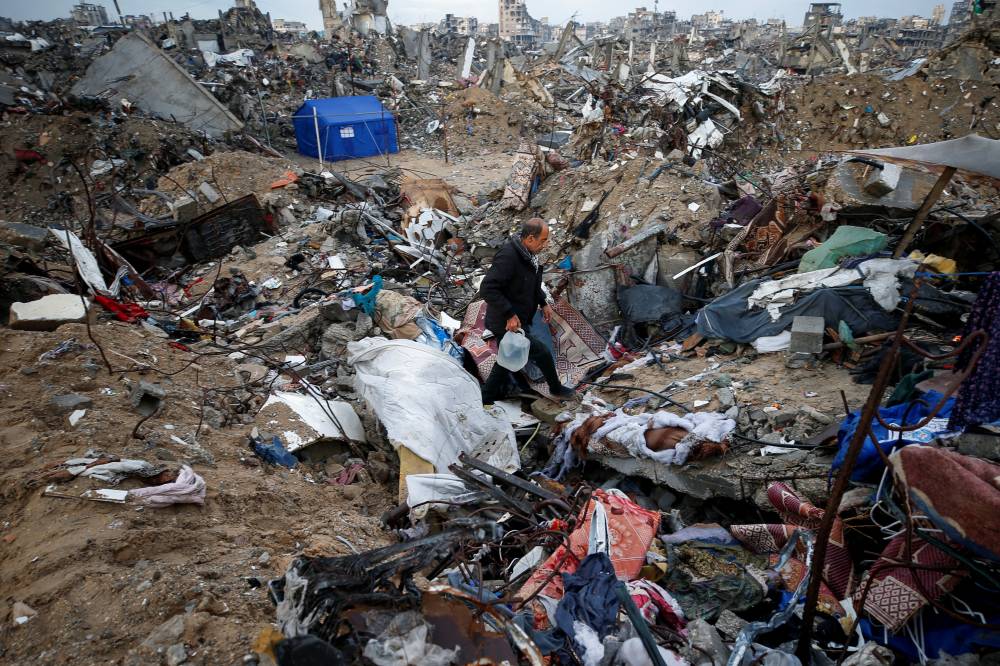
“We do not have the strength to carry it up and down the stairs. We have children, we have elderly. They all want water,” Kallab said as he lifted containers of water.
Twelve-year-old Mohammed Al-Khatib says he has to drag a cart for three-four km to get water.
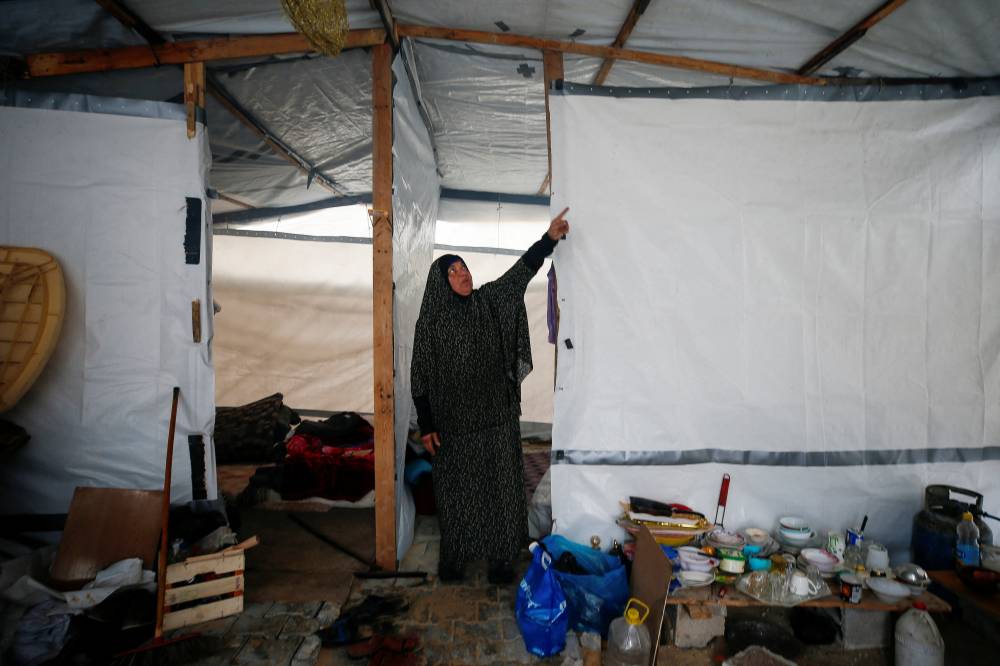
Mohammed Nassar, a 47-year-old Palestinian supermarket owner, said he has to walk for miles to fill buckets from a water pipe despite health problems and cartilage damage.
“We turn a blind eye to the pain because we have to,” he said.
Reuters, the news and media division of Thomson Reuters, is the world’s largest multimedia news provider, reaching billions of people worldwide every day. Reuters provides business, financial, national and international news to professionals via desktop terminals, the world's media organizations, industry events and directly to consumers.














